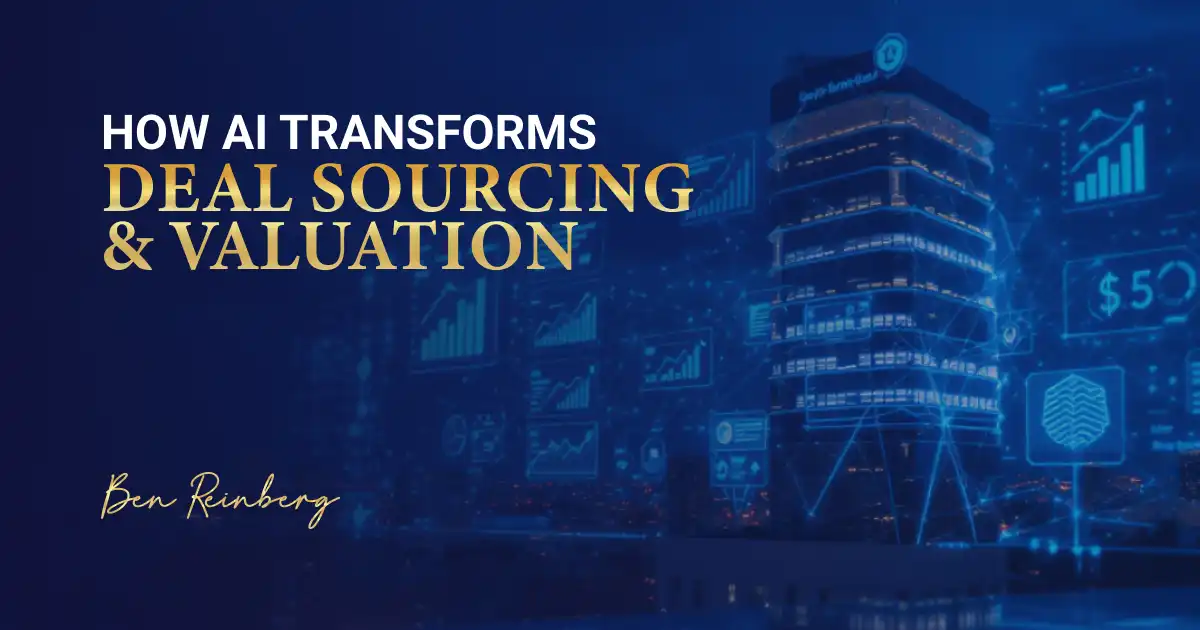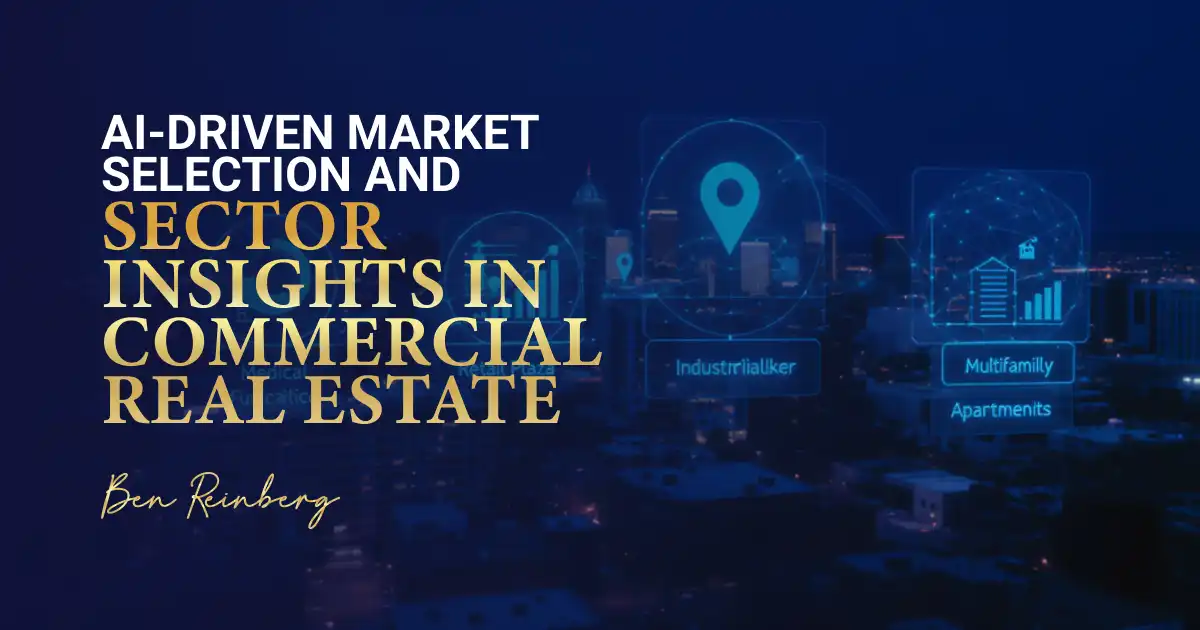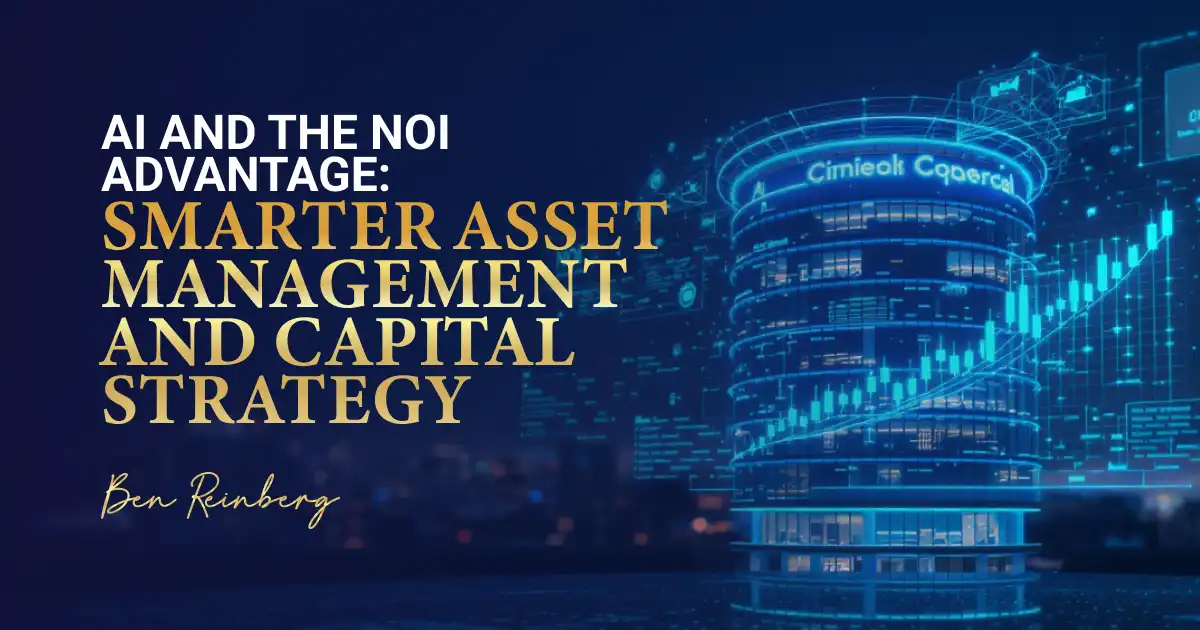
Why Real Estate is the Foundation of Wealth Creation
March 13, 2024
Discover the transformative power of a wealth mindset in real estate investment.
Read More >>>
Artificial intelligence (AI) is transforming commercial real estate (CRE) by reinforcing the fundamentals that have long driven success. Underwriting discipline, accurate valuation and strategic market timing remain critical, but AI now enhances them with sharper analytics, faster modeling and broader market intelligence. From sourcing to portfolio management, it is becoming an indispensable advantage for investors who value precision, execution and sustainable real estate investing.
Elevated interest rates, restricted lending and uneven sector performance make inefficiency costly. Manual lease abstraction and weeks-long financial reviews no longer keep pace with competitive bidding or refinancing risks. According to Deloitte’s 2024 Commercial Real Estate Outlook, more than 72% of real estate owners and investors are either already deploying or planning to deploy AI solutions.
What distinguishes outcomes is not the technology alone but the leadership guiding its use. Investors backed by decades of experience in cap rate discipline, portfolio construction and long-term value creation are positioned to apply AI effectively. Expertise ensures that technology serves fundamentals, producing clarity and conviction in markets that demand both speed and resilience.

The 2025 market presents both opportunity and pressure. Industrial, healthcare and multifamily properties continue to draw capital, while office and certain retail assets still face headwinds. Lenders are also becoming more selective, requiring stronger debt-service coverage ratios (DSCRs) and greater confidence in net operating income (NOI) projections.
In this environment, investors need sharper tools to evaluate deals quickly and act decisively. AI delivers that advantage. By scanning multiple market variables simultaneously, AI provides a faster and more comprehensive picture than weeks of manual work could achieve, encompassing absorption rates, tenant credit profiles, expense growth and commercial real estate sustainability factors.
It can stress-test NOI under different assumptions instantly and highlight risks in submarkets before they show up in traditional comps. This speed and clarity give investors an edge in sourcing and underwriting when the competition for quality, energy-efficient real estate is fierce.

Finding and evaluating the right deals has always been at the heart of CRE investing. In the past, most opportunities came through broker connections and industry networks. While those relationships remain valuable, AI has expanded the field, providing investors with faster access to opportunities that align with their strategy with greater accuracy.
AI takes sourcing beyond word of mouth by:
Due diligence that once took weeks can now be done in a fraction of the time. Underwriting timelines can be reduced by 30%–50%, giving investors a measurable edge in competitive bidding, according to McKinsey.
AI makes this possible by:
This shift allows analysts to move past repetitive data entry and focus on strategic insights. More importantly, it reinforces proven fundamentals, such as cap rate analysis and disciplined valuation. For investors guided by decades of leadership in sourcing and underwriting, AI isn’t a shortcut; it’s a multiplier that sharpens execution and builds confidence in every decision.

Location has always been the foundation of CRE success, and AI is giving investors a sharper, faster way to evaluate markets. Instead of relying on outdated demographic reports, AI processes real-time data, from mobility patterns to environmental, social and governance (ESG) and carbon metrics, uncovering opportunities that align with disciplined, green real estate investment strategies.
AI empowers investors to:
AI also strengthens sector strategies:

Acquiring a property is only the beginning of building long-term value. Protecting and expanding NOI determines whether investments thrive, and AI is providing investors with stronger tools to accomplish this.
AI enhances performance through predictive maintenance, efficient energy upgrades and benchmarking renewals against market comps. These practices cut costs, improve sustainability scores and create durable NOI growth.
AI sharpens capital markets strategy by tracking lender appetite and spread movements to anticipate shifts in credit conditions. It enables debt structures that preserve liquidity, aligning with the defensive mindset behind sustainable real estate investing.
AI delivers its most significant value when integrated consistently into investment processes, supporting underwriting, leasing and sustainability workflows. This consistency turns green real estate investment principles into measurable, long-term portfolio results.
AI is reshaping CRE by streamlining deal sourcing, underwriting and asset management, making these processes faster, more precise and aligned with the sustainability of CRE. Yet technology only creates lasting value when guided by proven leadership and disciplined strategy.
With over 30 years of experience, Alliance CGC has built a $500M+ portfolio by blending time-tested fundamentals with forward-looking innovation. This approach, anchored in rigorous underwriting, portfolio discipline and AI-driven insights, delivers resilience, sustainability and consistent returns.
Ready To Build Wealth While Creating Impact?
Partner with Alliance CGC and invest in sustainable CRE backed by a 28% historical IRR and a $500M+ track record:
The best real estate investment strategy combines disciplined underwriting, resilient portfolio construction and long-term value creation. Sustainable real estate investing strategies focused on medical, industrial and multifamily assets deliver strong performance.
AI enhances asset management by automating data analysis, predicting maintenance needs and optimizing NOI through efficient capital allocation. When applied to energy-efficient real estate, it also improves ESG alignment.
AI can be used to source deals, underwrite properties, manage assets and guide capital strategies. It helps stress-test NOI under sustainability-driven scenarios, reinforcing green real estate investment frameworks.
The most profitable strategies focus on acquiring resilient, energy-efficient real estate in medical office, industrial and multifamily sectors. Combining tenant credit, sustainability and proactive management creates consistent returns.
